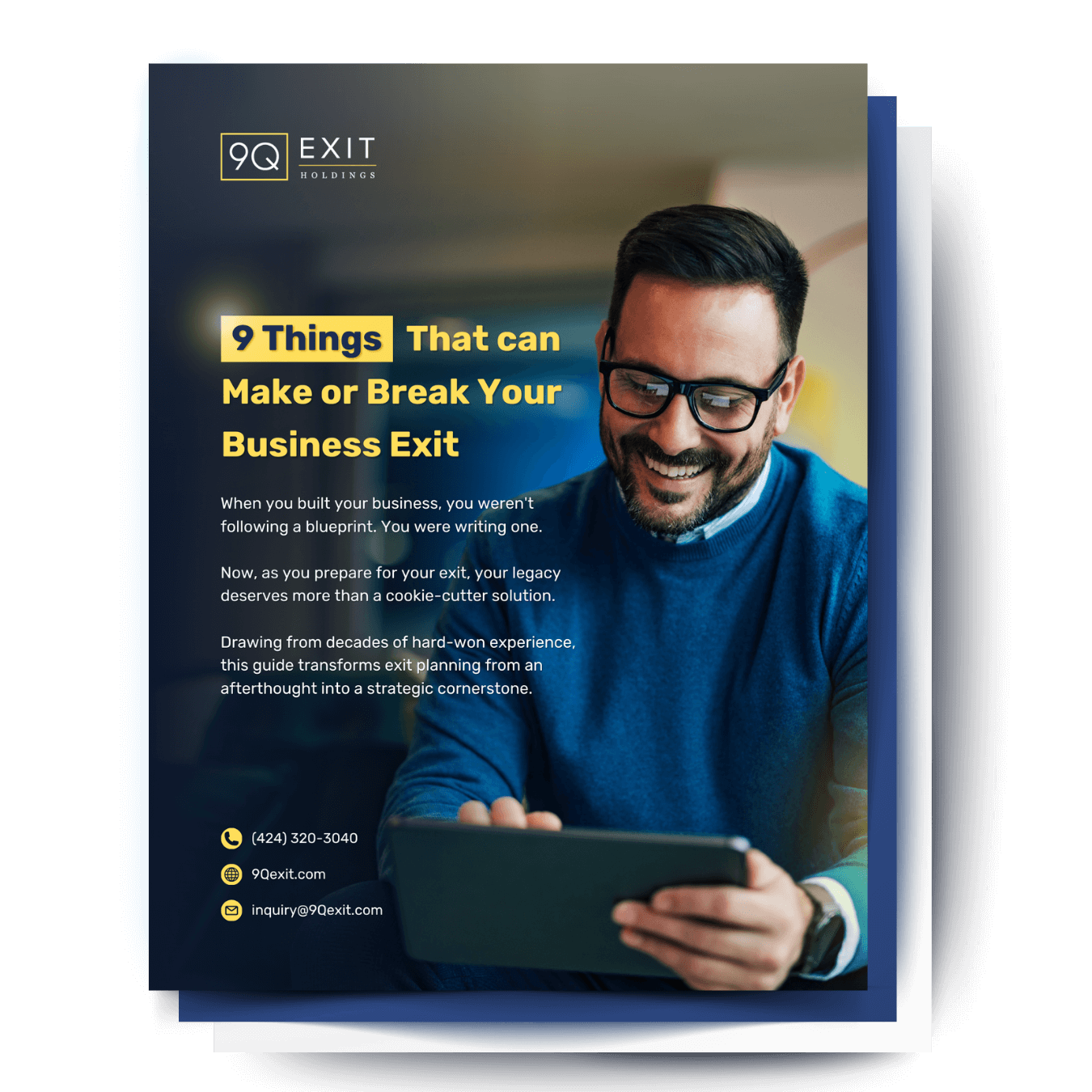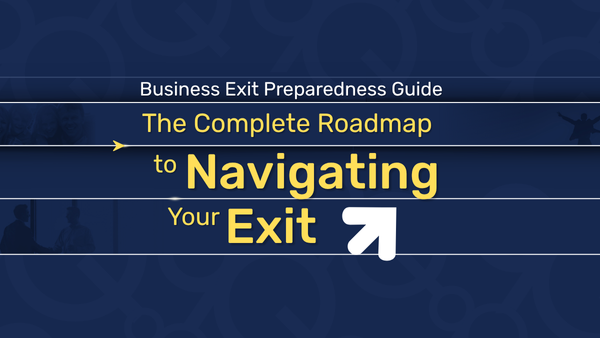For many business owners, an exit strategy is about maximizing value, ensuring continuity, and moving on to new opportunities. But for professional service providers and technical experts, exiting is far more complex—because you are the business.
If your clients rely on your expertise, if your reputation is the foundation of your firm, or if your knowledge is what drives revenue, then leaving isn’t as simple as selling a product-based company. The challenge isn’t just finding a buyer; it’s ensuring your business can thrive without you.
This is the Specialist’s Dilemma—and solving it requires a strategic approach to knowledge transfer, client relationship transitions, and systematizing expertise.
The Challenge: When the Business
Is Built Around You

Many professional service businesses—law firms, medical practices, consulting firms, engineering firms, and financial advisory practices—are heavily dependent on the founder’s personal expertise and relationships.
If you find yourself in this position, potential buyers or successors may see significant risk in acquiring your business because:
- Clients may only trust you, making retention difficult.
- Your knowledge isn’t documented, making training and transition harder.
- Your team may not have the authority or experience to take over key decisions.
- The business’s valuation is tied to your presence, reducing its marketability.
To create a successful exit, you need to shift from being the center of the business to building a business that can operate without you.
Step 1: Transferring Your Knowledge Effectively
The first step in preparing for an exit is ensuring your expertise isn’t locked in your head. Buyers want a business with established processes, systems, and intellectual capital that can be leveraged post-exit.

How to Transfer Your Expertise:
✅ Document Processes: Develop SOPs (Standard Operating Procedures), templates, and best practices to codify your knowledge.
✅ Train Key Employees: Invest in mentorship programs, knowledge-sharing meetings, and internal training to upskill your team.
✅ Leverage Technology: Use AI tools, databases, and knowledge management systems to capture specialized insights.
✅ Build a Licensing Model: If applicable, create courses, certifications, or toolkits that turn your knowledge into a scalable asset.
The more tangible and transferrable your expertise becomes, the less dependent your business will be on you.
Step 2: Transitioning Client Relationships

For many experts, their personal relationships with clients are just as valuable as their technical skills. If clients see you as the face of the business, they may hesitate to stay when you leave.
How to Transition Client Relationships:
✅ Introduce Clients to Your Team Early: Position key employees as trusted advisors well before your exit.
✅ Use a Phased Transition Approach: Gradually reduce your client-facing role while increasing your team’s involvement.
✅ Communicate the Plan: Let clients know why the transition is happening and how it benefits them.
✅ Incentivize Loyalty: Offer continuity discounts, multi-year contracts, or added benefits for staying post-transition.
If clients feel secure in the new leadership, they’ll stay, even when you leave.
Step 3: Systematizing and Scaling Your Expertise

A business that relies on a single person is difficult to sell. Buyers want systems, not personalities. Your goal is to convert expertise into repeatable processes that can run without your daily involvement.
How to Build Systems That Replace Personal Expertise:
✅ Productize Your Services: Convert custom consulting or advisory work into scalable solutions, such as membership programs, licensing, or digital products.
✅ Delegate and Empower: Shift decision-making authority to a leadership team that can operate independently.
✅ Standardize Pricing and Delivery: Establish clear service packages, defined workflows, and repeatable sales processes.
✅ Develop a Brand Beyond You: Market the firm’s expertise rather than positioning yourself as the sole thought leader.
A well-structured business with scalable systems is more attractive to buyers and commands a higher valuation.
Final Thoughts: From Specialist to Scalable Business
If you’re the expert at the center of your business, an exit won’t happen overnight. But with careful planning, you can transition from indispensable specialist to scalable enterprise, ensuring that your legacy—and your wealth—remain intact long after you step away.
The key is early preparation. By documenting knowledge, transitioning relationships, and building repeatable systems, you transform your expertise from a personal asset into a business asset—making your firm more valuable and exit-ready.
If you’re considering your exit options and want to build a strategy that maximizes your firm’s value, start planning today. Your future—and your business’s—depends on it.
Read more from 9Q Exit Media:
– How to Create A Sustainable Business Through Systematic Creativity
– How to Make the Most of Changing Market Conditions







